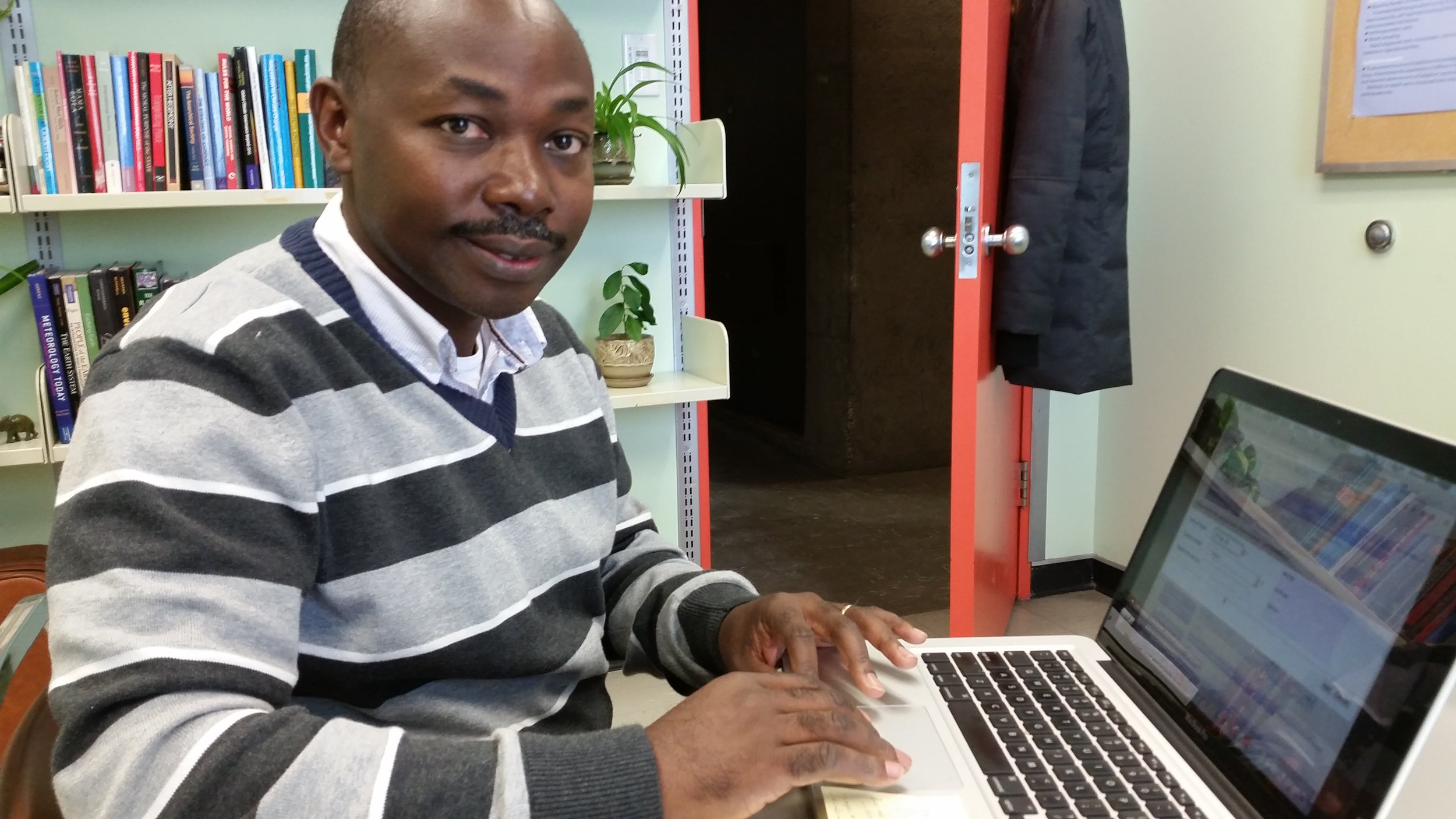Mya Sherman was in Montreal this week, and will be in Guelph next week to conduct interviews with IHACC researchers and students in the context of the Evaluating Indigenous Vulnerability and Adaptation Research (EIVAR) project, which aims to characterize the role of research in climate change adaptation in diverse indigenous communities. Mya has developed a monitoring and evaluation framework for community-based adaptation research and is applying this framework to the Indigenous Health Adaptation to Climate Change (IHACC) research program as a case study. After the current round of interviews in Montreal and Guelph, she will be conducting extensive fieldwork from April – September 2015 with the indigenous communities in IHACC’s three regions, including the Canadian Arctic, Peruvian Amazon, and southwestern Uganda. Participatory qualitative methods –including semi-structured interviews, historical timelines, the most significant change method, the theory of change, and ranking exercises– will be carried out with the wide range of participants and stakeholders involved in the IHACC research program, including community members, researchers, government institutions and non-governmental organizations. This research will provide new insight into how different stakeholder groups perceive meaningful community-based adaptation research and the ways research can influence adaptation processes and outcomes in diverse indigenous settings. The project is lead by Mya Sherman, Lea Berrang-Ford, James Ford, Shuaib Lwasa, Alejandro Llanos, Sherilee Harper, Victoria Edge, and Thomas Marcello.
Didacus Namanya at McGill University in January and February
IHACC Co-Investigator Didacus Namanya has been visiting the team at McGill University since mid-January, and will be staying until to the end of February. During his stay, Didas has been primarily focusing on developing the proposal for his Doctorate degree (Makerere University), with the support of Sierra, Kate and other IHACC members in the Health Geography Lab at McGill. He has also had the opportunity to contribute more substantially to the planning of the upcoming annual project meeting as a member of the Project Management Committee. It has been a great opportunity for members working from different institutions to interact and share methods, study designs and findings. We wish Didas the best of luck in his graduate studies at Makerere University.

Kate Bishop-Williams featured in the Ontario Veterinary College Bulletin
IHACC collaborator Kate Bishop-Williams was featured in the University of Guelph's Ontario Veterinary College Bulletin this week. To read the OVC Bulletin post, click here.
University of Guelph collaborators Kate and Vivienne in Uganda
Two IHACC collaborators from the University of Guelph are currently in Buhoma, Uganda collecting birth outcome data on local communities from Bwindi Community Hospital. Kate (a PhD student at the University of Guelph) and Vivienne (a McGill University graduate now working as a Research Assistant at the University of Guelph) are helping collect data for Sarah MacVicar's M.Sc. thesis project. The two will be in the field until the end of March. The IHACC team wishes them the best of luck, and a successful field experience!

Congratulations to Joanna on the completion of the MA thesis
 A big congratulations to Joanna Petrasek MacDonald, whose MA thesis "From the minds of youth: exploring Inuit youth resilience within a changing climate and applications for climate change adaptation in Nunatsiavut, Labrador, Canada" has been accepted. Joanna would like to thank the community members, academic peers and funding agencies for their collaboration and support that made this thesis possible. Joanna is currently the project coordinator for IK-ADAPT, and you can find her bio here: http://www.jamesford.ca/about#joanna
A big congratulations to Joanna Petrasek MacDonald, whose MA thesis "From the minds of youth: exploring Inuit youth resilience within a changing climate and applications for climate change adaptation in Nunatsiavut, Labrador, Canada" has been accepted. Joanna would like to thank the community members, academic peers and funding agencies for their collaboration and support that made this thesis possible. Joanna is currently the project coordinator for IK-ADAPT, and you can find her bio here: http://www.jamesford.ca/about#joanna
Abstract: The Canadian North is experiencing rapid social, cultural, economic, political, and environmental change that have direct impacts on the lives of Inuit living in this region, as well as serious implications for the future of the Inuit youth. Essential to facing this challenging context is a resilient youth population with the adaptive capacities and coping skills to respond to multiple stressors and pressures. This thesis considers the question of how to foster youth resilience and support youth protective factors that enhance youth well-being and can help young people deal with change, specifically climate change. To answer this question, a systematic literature review, a community-based, youth-led, cross-cultural participatory video project, and a regional community-based study were undertaken to explore youth-identified protective factors and examine challenges to these factors from youth perspectives and experiences. Specifically, this thesis characterizes the protective factors that influence Circumpolar Indigenous youth mental health resilience to climate change; explores participatory video as a process that can foster protective factors thereby demonstrating potential to be used in adaptation as a way to enhance youth resilience; documents youth-identified protective factors that support mental health and well-being amidst change (i.e. social, cultural, economic, or environmental); and examines how climatic changes and related environmental impacts challenge these factors throughout the region of Nunatsiavut from a youth perspective. The findings from this work highlight the importance of youth voices, perspectives, and involvement within research and practitioner communities, and contributes to the growing body of research on Circumpolar Indigenous youth resilience that can inform climate change adaptation efforts.





